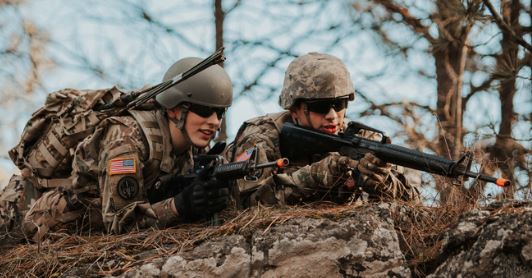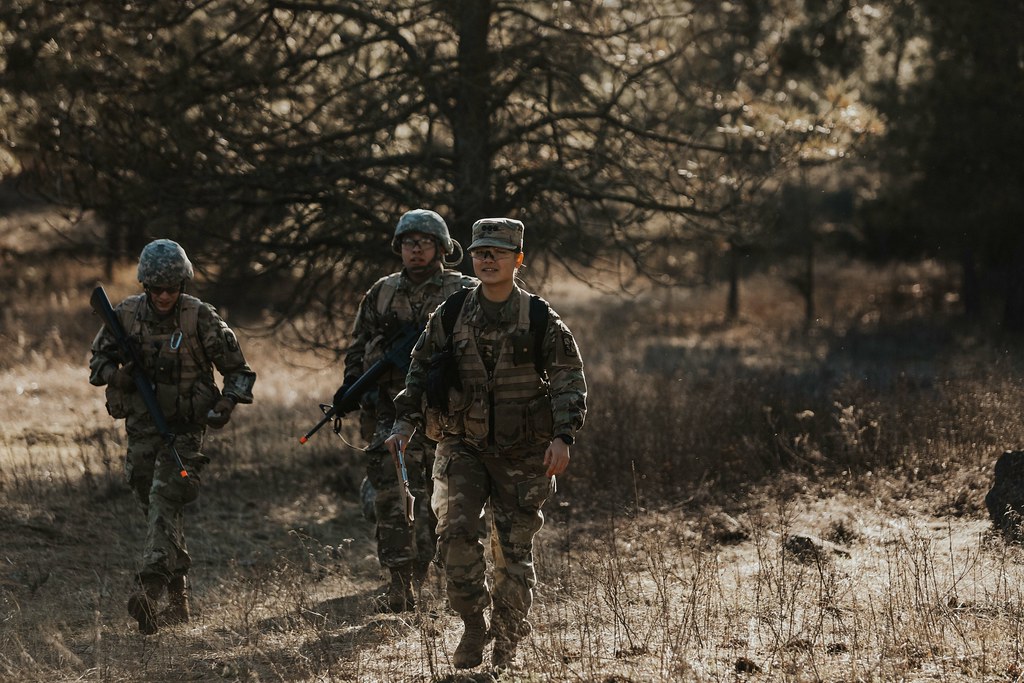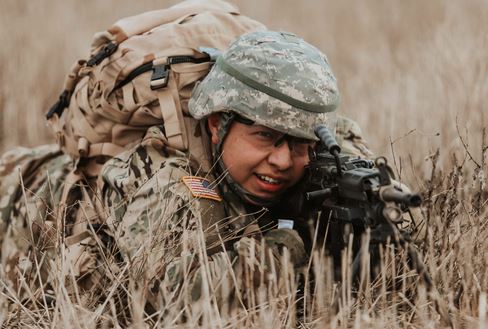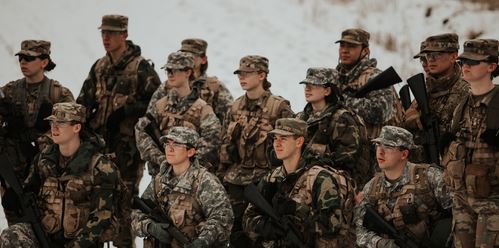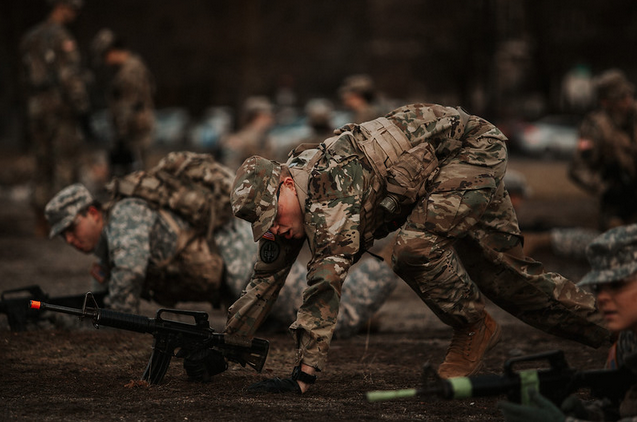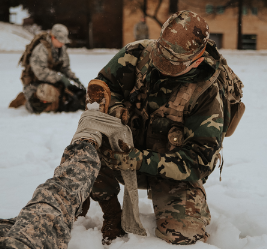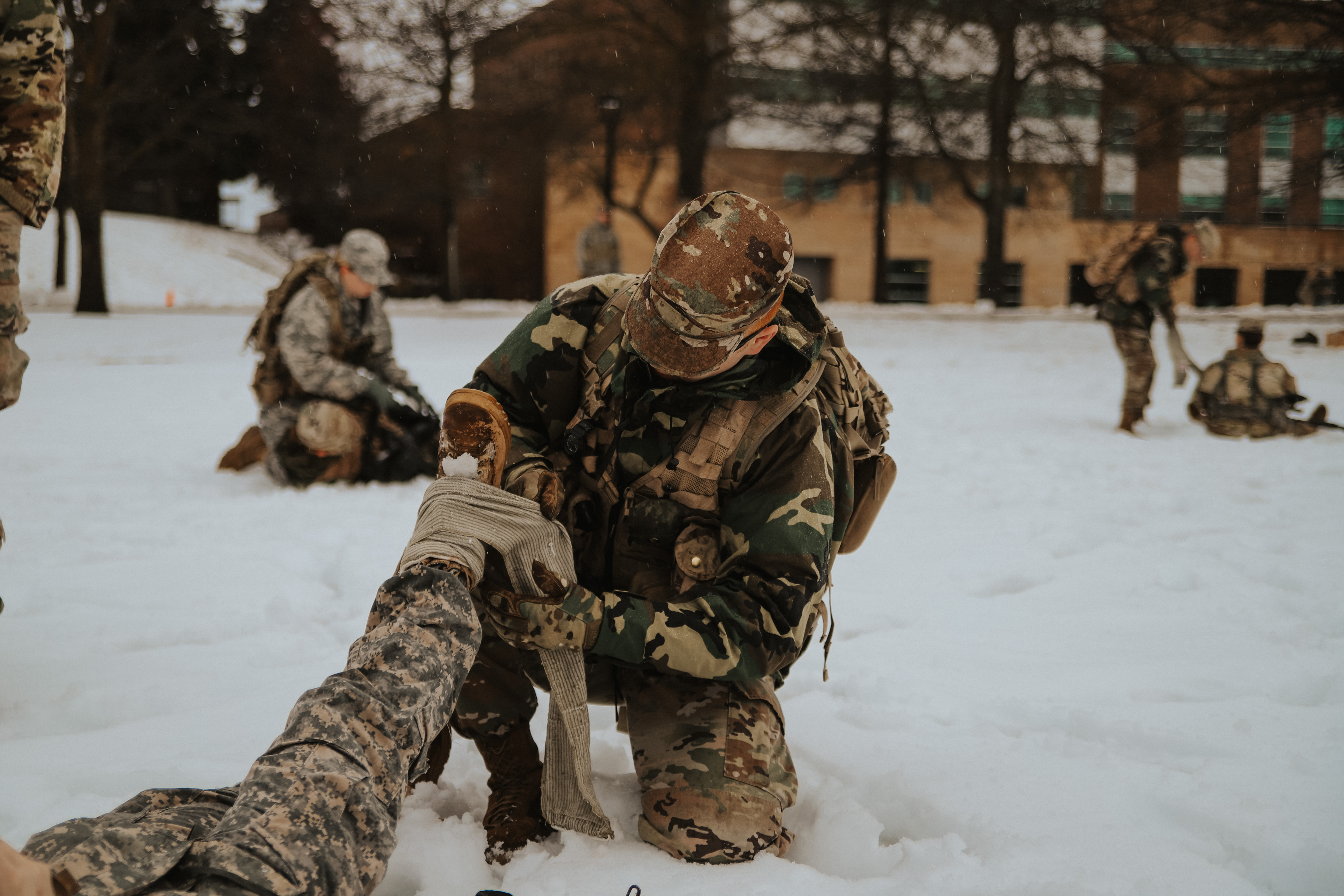By: Cadet Marcos Sanchez
On the 27th of February 2020, Eastern Washington University (EWU) Reserve Officer Training Corp (ROTC) Cadets once again traveled out to training site “Waterworks” to conduct the eighth lab of the Winter quarter. The purpose of this lab was to have the MS3, Junior grade, Cadets demonstrate their ability to conduct area and perimeter defense to standard. Not only will this help them excel at the upcoming Winter Field Training Exercise (FTX) but it will also help them at Advanced Camp this upcoming summer at Ft. Knox, Kentucky.

In order to maximize the efficiency of the allotted time for training, Cadet Christian Goldbach, the officer in charge, had the MS3 Cadets also conduct missions with Recon and Surveillance (R&S) and Listening Post Observation Post (LPOP) teams. These are two tactics that will be used often at camp and practicing them will help them tremendously. The purpose of the R&S teams is to identify any threats in an area of interest and report the information back to the main element. The LPOP is similar to the R&S team but serves as a patrol bases early warning system. They stay out a good distance from the main element and report if any incoming threats are approaching all while remaining undetected.
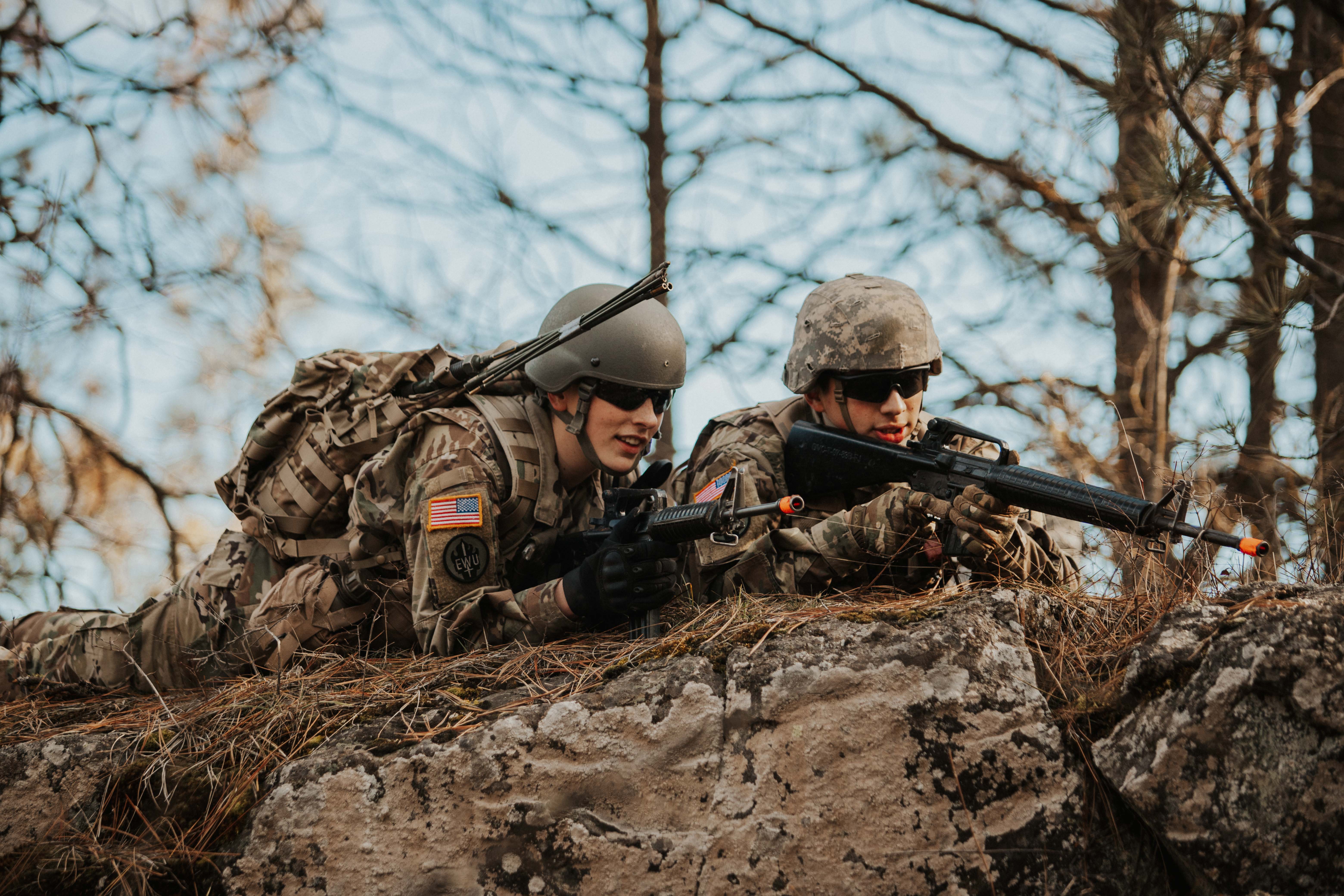
Throughout the training exercise Cadets were hit with indirect fire which forced them to call out a direction and distance in order to move their squad to a safe distance. This was only done if they were not meeting time restraints, but also helps with using their mental agility. This is a strategy that many Cadre use at camp in order to maintain timelines and disciplines such as noise and visibility. This all helps to give the MS3 class Cadets the most realistic training possible to prepare them for future upcoming field training exercises.

Note: You can view more images from the lab on our EWU ROTC Flickr page.
